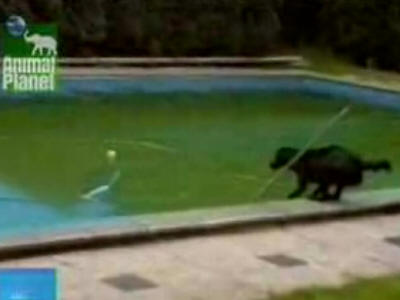What exactly is 'intelligence'?

For example, dogs can be said to have 'high intelligence', but it is difficult to explain 'what is 'intelligence'?'.
What Is Intelligence? Where Does it Begin?-YouTube
There are many things that humankind have been proud of, such as accelerators, poetry, and Pokemon. The reason why we can create such a thing is that human beings have extremely high 'intelligence'.
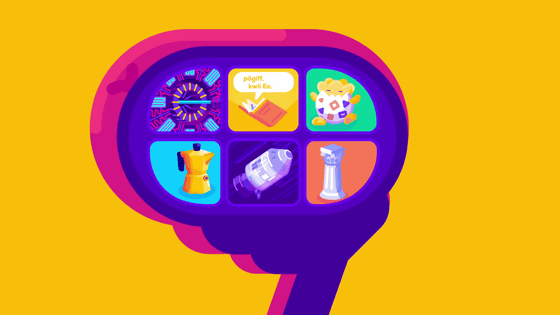
People consider intelligence to be a characteristic like height and power. However, the definition of intelligence is very vague.
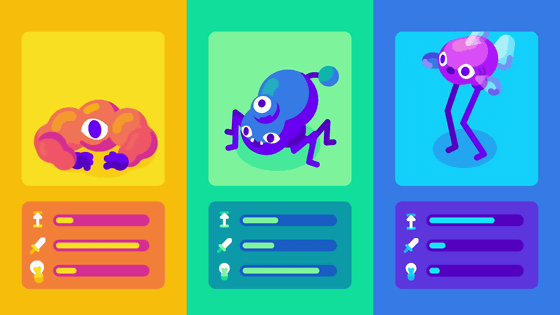
Quite simply, intelligence is a 'mechanism that solves problems.' There are many possible problems, but the most important ones are survival issues such as 'getting food,' 'finding a safe place,' 'beating competitors to leave offspring,' 'running away from predators.'
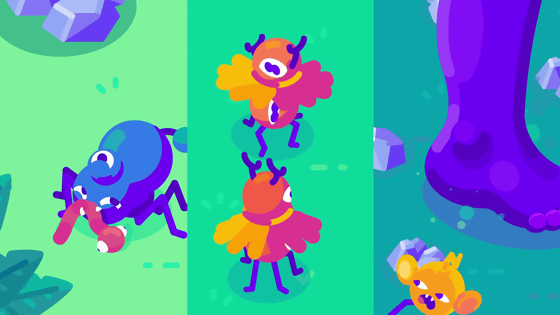
Intelligence is not a single ability, but an ability that combines knowledge, learning, creativity, strategy making, and
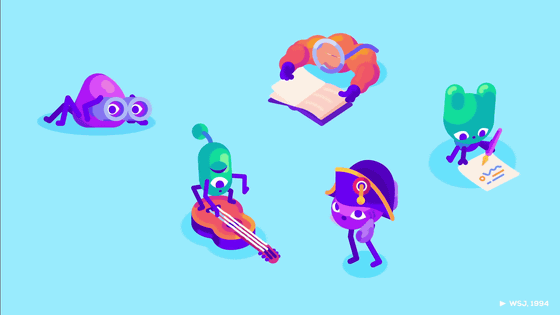
We can confirm the existence of intelligence in instinct-based behaviors such as biological reflexes , various levels of learning, and certain consciousness.
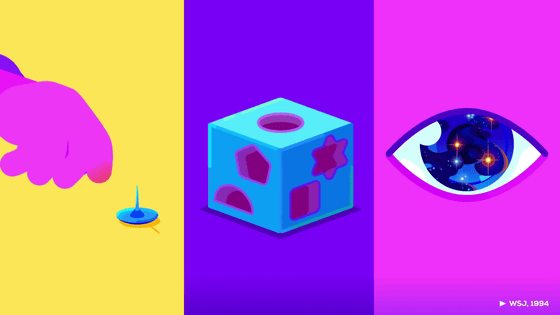
However, scientists do not agree on the questions such as 'where intelligence comes from,' and 'which concepts are classified as intelligence.'
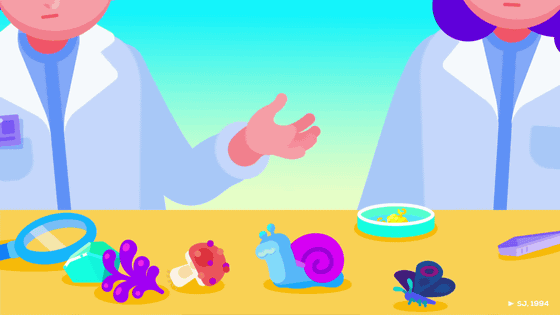
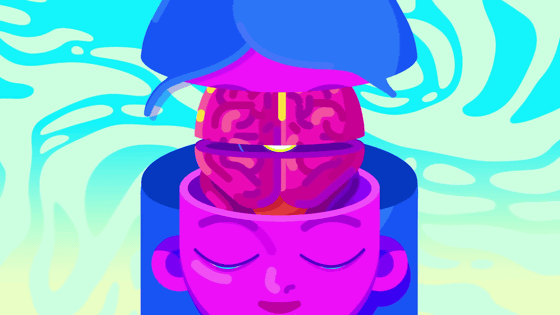
So this time, let's consider intelligence as a set of several skills. The most basic elements of intelligence are the three skills of 'perceive,' 'remember,' and 'learn.'
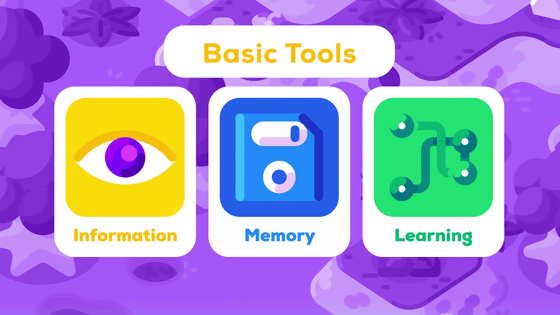
Creatures can use their five senses to 'perceive' their surroundings.
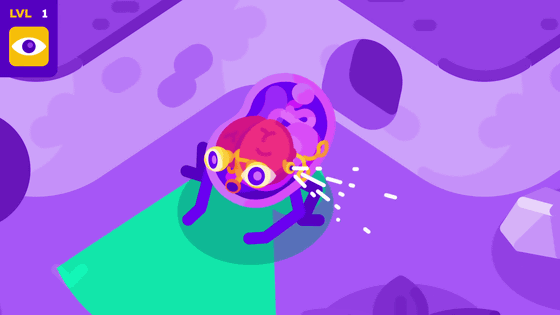
However, it is important for us to continue to recognize not only the five senses but also internal information such as hunger and fatigue. If you don't get this information, your survival will be unlucky.
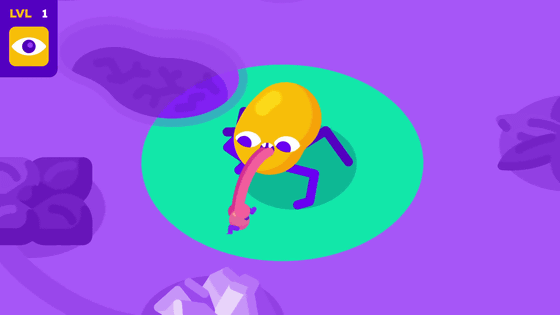
'Memory' is the ability to store and remember the collected information. If you have a memory ability, you can not only remember information about events, places, relationships, etc., but also “how to hunt” and “how to collect food”.
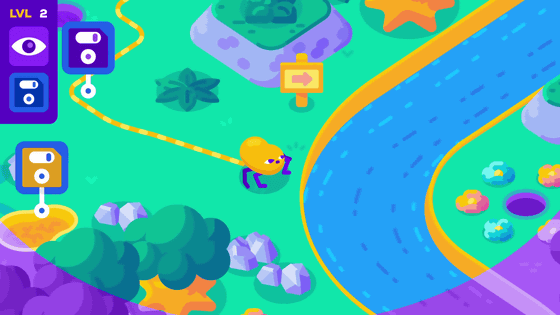
However, actions such as 'flying in the sky' require repetitive practice until you can do it well. In that case, 'learning' to change and adapt a series of thoughts and actions is important. If you have the three abilities of perception, memory, and learning, you might say that you are a very clever creature.
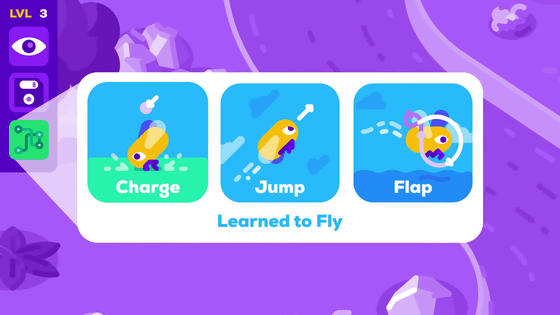
On the other hand, there is also a
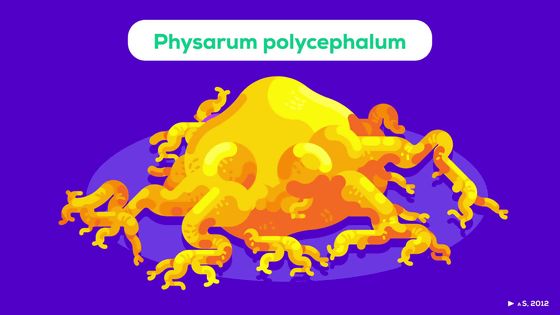
If you put moji dust and strong-smelling food in a container and put an obstacle like a maze between them...
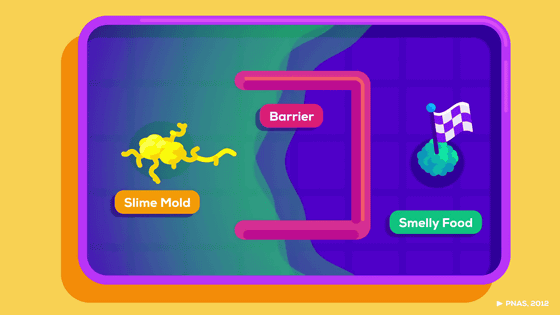
Following the scent of food, Moji dust spreads the tube in the labyrinth, eventually leaving only the tube that connects the shortest distance to the food and depleting the rest.
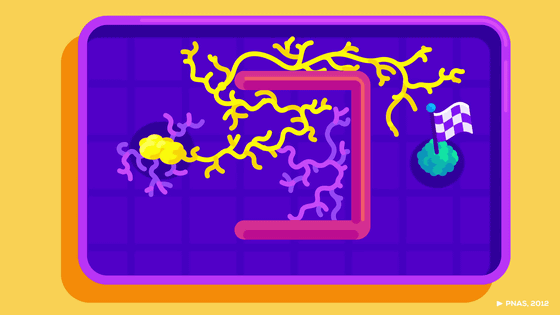
Since this behavior is based on the instincts of the mochi dust, it seems that the mochi dust also has intelligence, but scientists do not admit that it has intelligence.
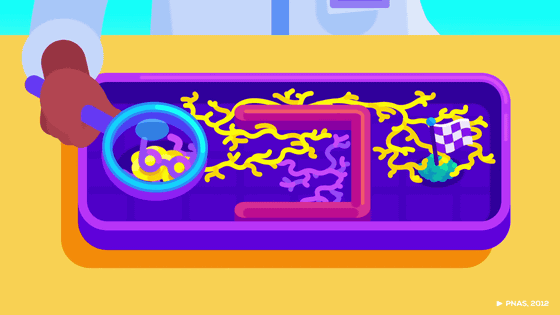
A good example of an intelligent creature that adapts is the bee.
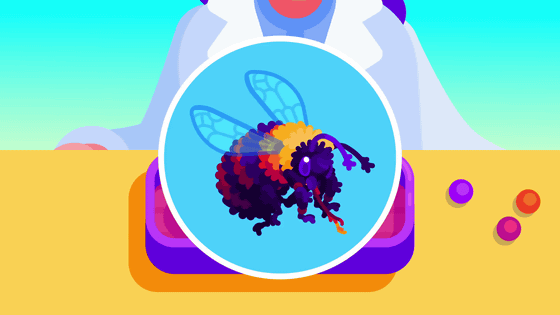
I went to a
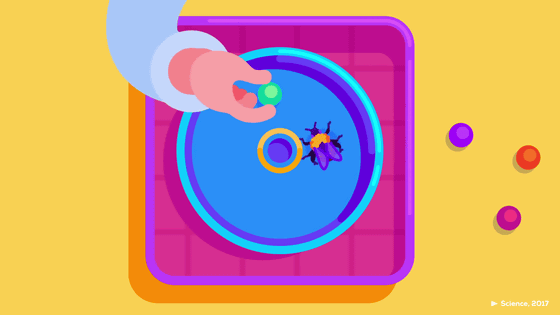
Some creatures have the ability to solve more advanced problems. Raccoons are known to open windows and unlock keys to obtain human food.
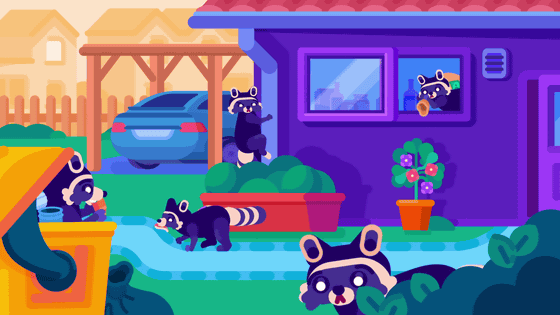
According to research, raccoons can be unlocked within 10 trials if they are lockable type, lantern type, plug type, push rod type lock, and even if multiple locks are combined, they can be opened without problems thing. Furthermore, the raccoon, who once learned the unlocking method, remembers the method even after one year, and the unlocking speed does not slow down.
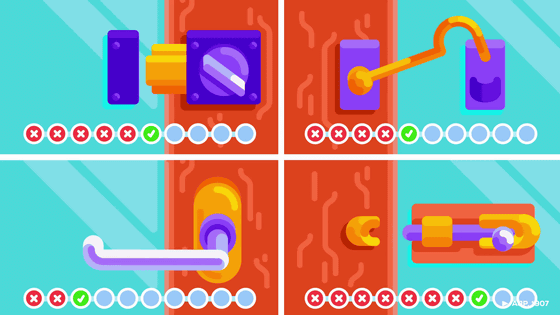
As the intelligence evolves, it gains 'creativity.' Creative creatures can create something new and valuable from apparently unrelated events.
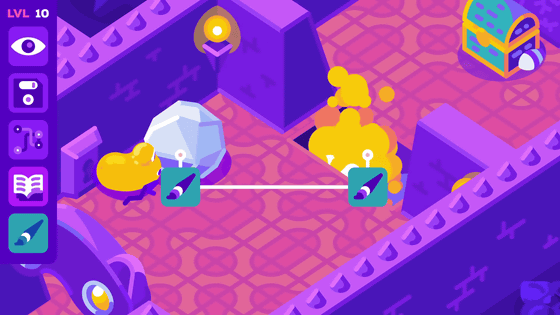
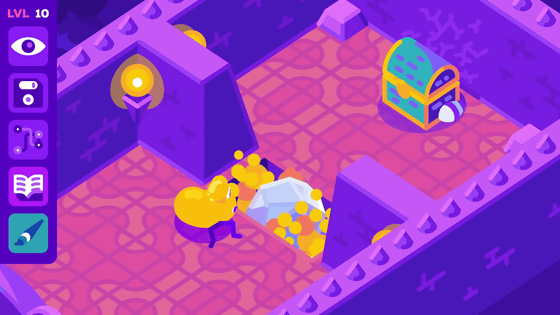
In the raccoon's experiment, 'Marshmallows floating in a cylinder of water are taken by throwing stones into the cylinder and raising the water level.'
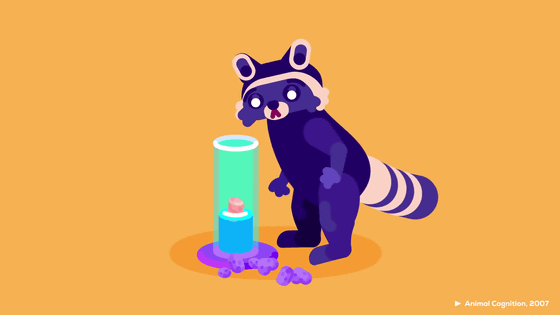
It has been confirmed that the creative raccoon took the action of 'defeating the cylinder and taking marshmallows.'
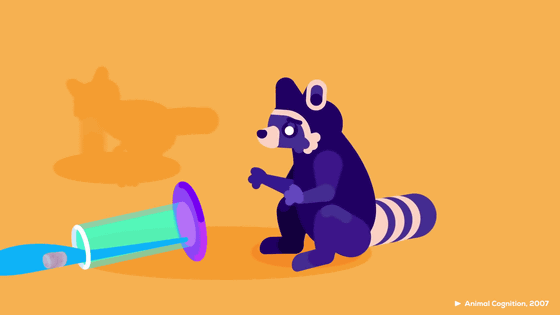
The next step in creativity is the use of tools.
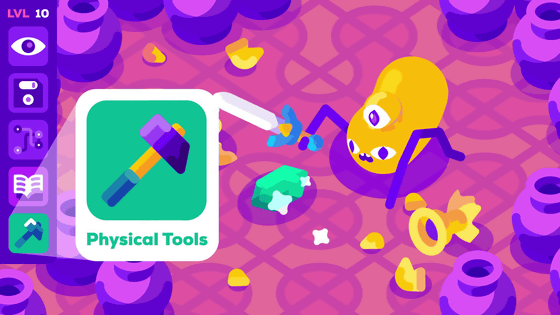
Primates use sticks to lift termites in trees...
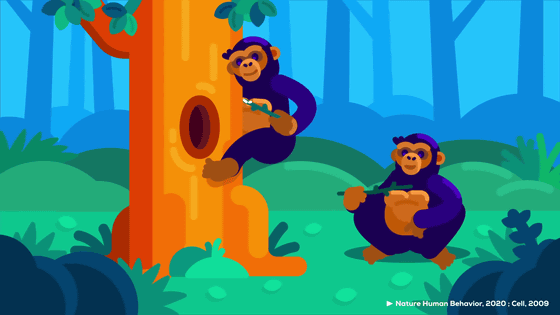
Octopus is known to use coconut shells as a 'portable armor'.
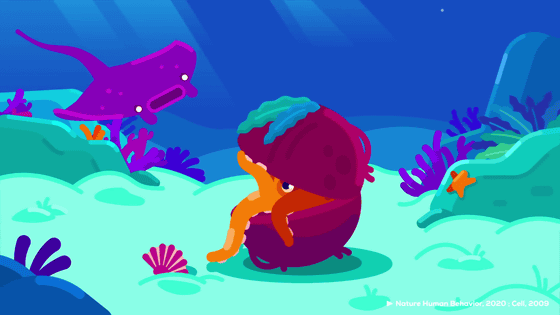
The act of collecting material for later use leads to 'planning'. Planning is the ability to think about the processes required to achieve an objective and assemble them.
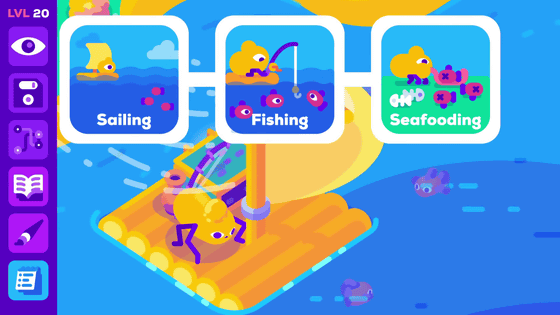
It is known that the squirrel fills the ground with a portion of the food it has taken, but when it feels that it is being seen, it does 'pretend to fill the food'.
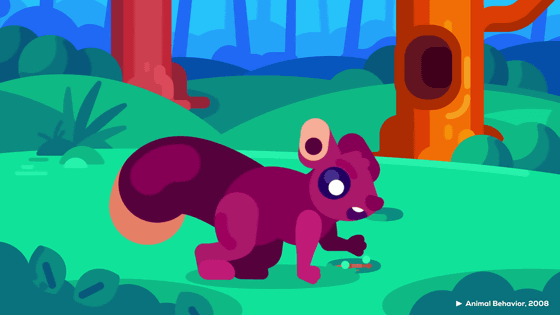
By pretending to fill the feed, the squirrel trying to steal the buried feed can be deceived and the 'place where it really filled' can be hidden. This shows that the squirrel has a very high degree of intelligence to 'think of the thoughts of others.'
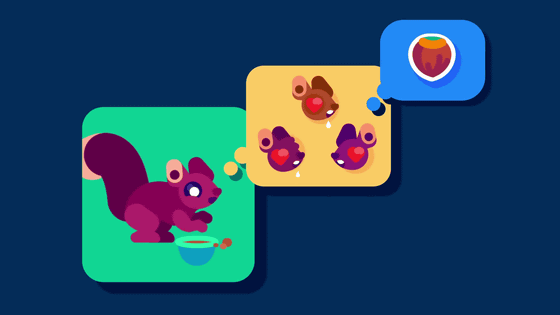
As a problem becomes more complex, it requires a wider range of intelligence to solve it. However, the 'complexity of the problem' varies from animal to animal. For example, squirrels are omnivorous and have the habit of protecting their territories. Therefore, for squirrels, 'remembering where the food is' and 'fooling rivals' are important for increasing survival rate.
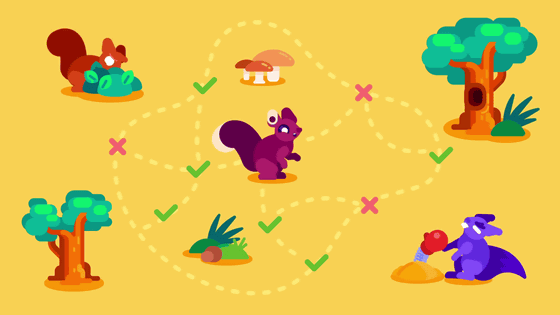
On the other hand, sheep, which are herbivorous and tend to live in groups, excel in their social ability. Sheep can recognize fellows and remember their faces. In addition, sheep can learn human faces.
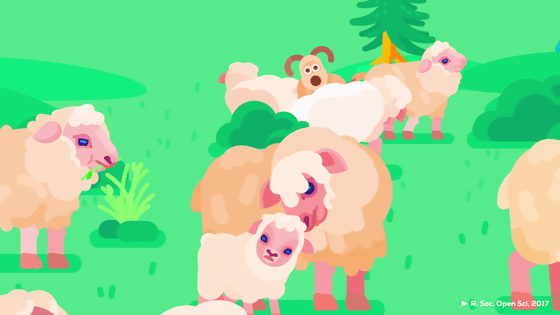
Squirrels and sheep have evolved different intelligences.
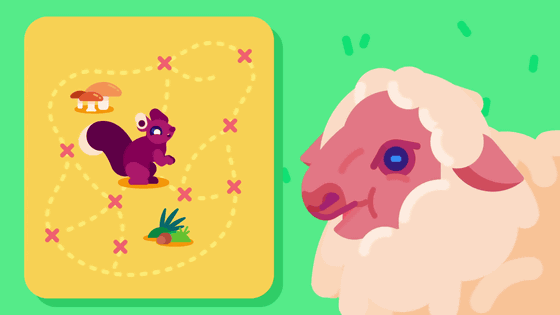
And mankind has developed a totally different kind of intelligence called 'culture.'
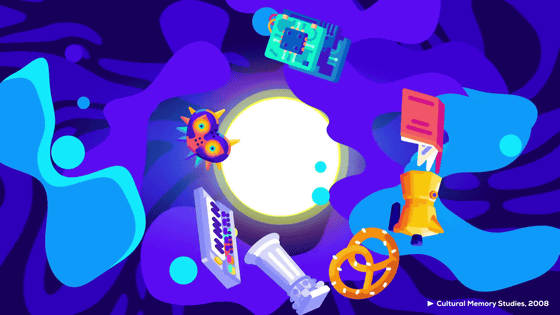
There is no human being who can build a rocket or an accelerator by himself.
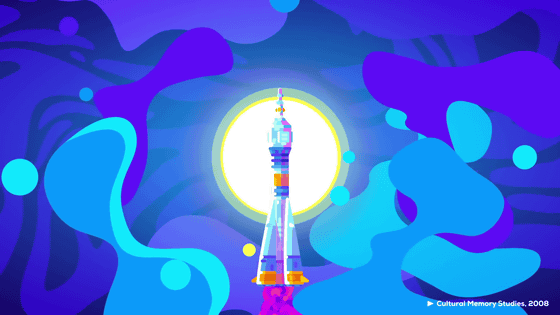
By having the ability to “cooperate” and “to share knowledge across generations,” humankind has become capable of surpassing “individual”.
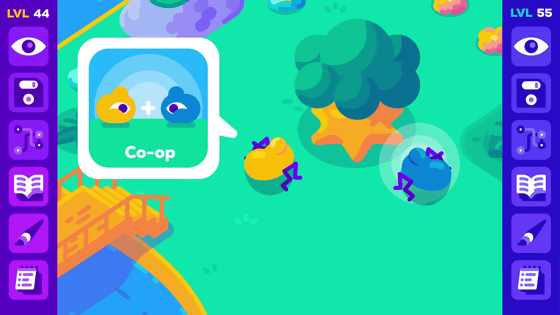
Mankind now has the ability to remake the earth as it pleases. However, with the development of humankind, new problems such as global warming and
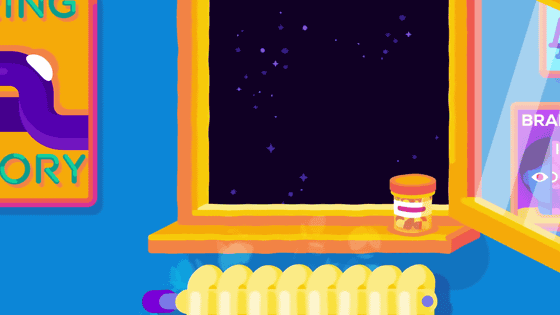
To confront new problems, we should stop looking at short-term profits and think about a distant future. Humanity has intelligence. Then just use it.

Related Posts:
in Video, Posted by darkhorse_log





